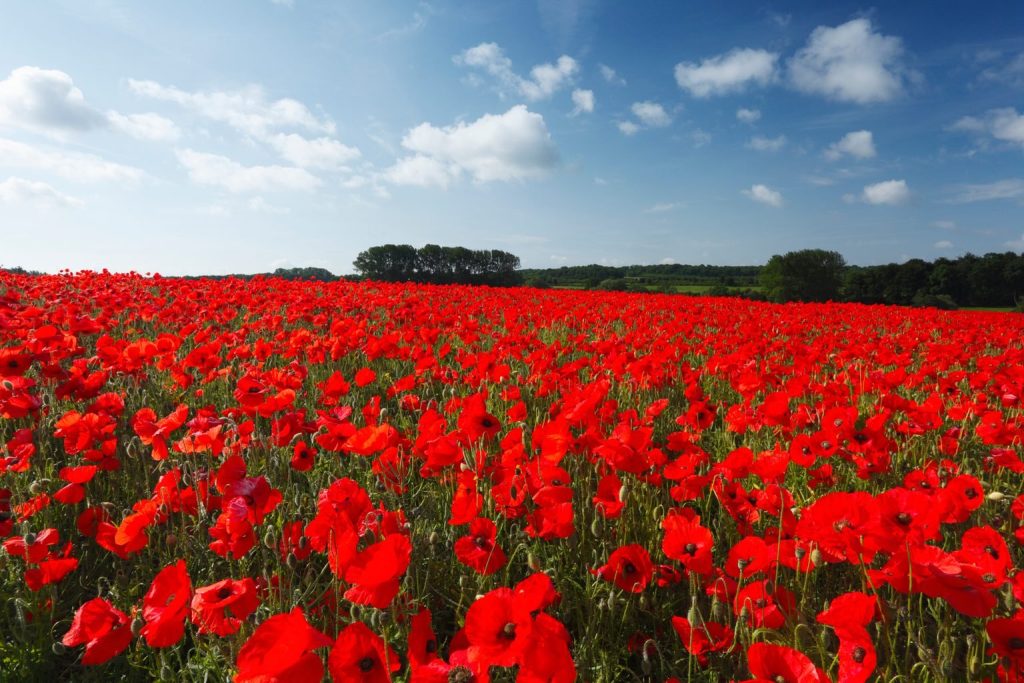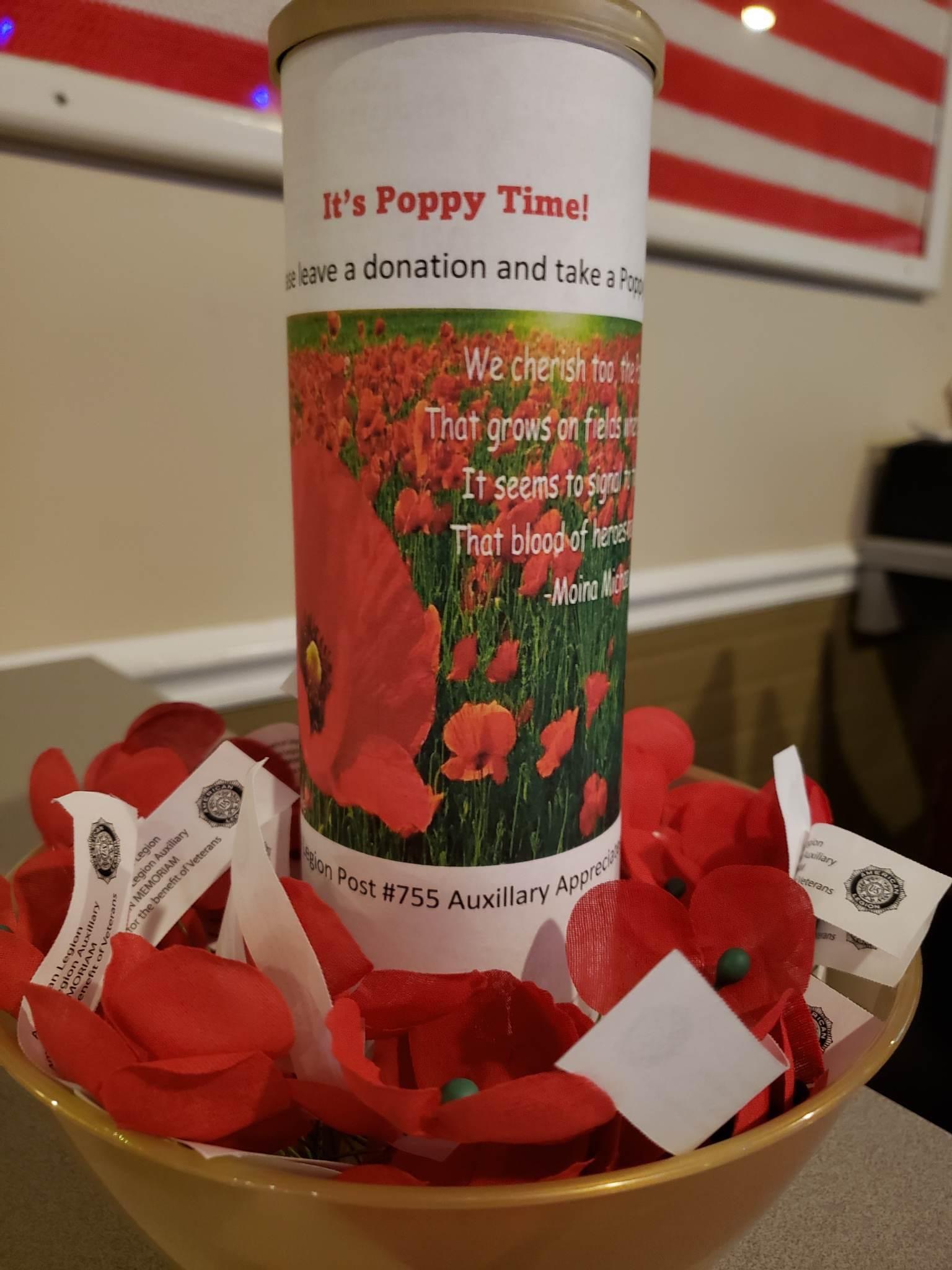Memorial Day The Significance of the Poppy and Flanders Field

By Debbie Werner
Passing this on again as a tribute to Memorial Day for 2023. It is something that we all should remember why we celebrate Memorial Day.
On the week leading to Memorial Day, millions of red poppies that are all handmade by veterans (Disabled American Veterans) as part of their therapeutic rehabilitation are distributed across the country in exchange for donations that go directly to assist disabled and hospitalized veterans in our communities.
When I was growing up, my mom sold poppies every year to all the neighbors for the Peotone American Legion Auxiliary by walking up and down the street that we lived on. She also sold them in front of a local businesses in Peotone on the Saturday before Memorial Day.
And that tradition goes on in Peotone with members of the Peotone American Legion Auxiliary and the Peotone American Legionnaires as well as friends of those organizations. These people will be standing by a storefront in Peotone, soliciting monetary donations again this year to support our veterans in the Peotone, Beecher and Manteno area on this upcoming Memorial Day weekend.
So when you see those volunteers out there selling poppies, please reach deep into your pocket and purchase a poppy and show your support of those veterans who have served for our country and sacrificed so much. The Poppy Days program raises community awareness and respect for our veterans.
My dad was a WWII vet, and before they passed, both my parents were very active in the Peotone American Legion and Auxiliary. And both my brother and I are very active with the Peotone American Legion and Auxiliary. Poppy Days and the distribution of the bright red memorial flower to the public is one of the oldest and most widely recognized programs of the American Legion Auxiliary of which I belong.
The story behind the poppy is that from the battlefields of World War I, weary soldiers brought home the memory of a barren landscape transformed by wild poppies, red as the blood that had soaked the soil. By that miracle of nature, the spirit of their lost comrades lived on. The poppy became a symbol of the sacrifice of lives in war and represented the hope that none had died in vain.
The American Legion Auxiliary poppy has continued to bloom for the casualties of four wars, its petals of paper bound together for veterans by veterans, reminding America each year that the men and women who have served and died for their country deserve to be remembered.
The poppy, as a memorial flower to the war dead, can be traced to a single individual, Moina Michael. She was so moved by Lt. Col. McCrae’s poem, “In Flanders Fields,” that on impulse, she bought a bouquet of poppies – all that New York City’s Wanamaker’s Department Store had – and handed them to businessmen meeting at the New York YMCA where she worked.
She asked them to wear the poppy as a tribute to the fallen. That was in November 1918. World War I was over, but America’s sons would rest forever “in Flanders’ Fields.”
Later, she would spearhead a campaign that would result in the adoption of the poppy as the national symbol of sacrifice.
“In Flanders Fields” is a war poem written during the First World War by Canadian physician and Lt. Col. John McCrae. He was inspired to write it on May 3, 1915, after presiding over the funeral of friend and fellow soldier Alexis Helmer:
In Flanders fields the poppies blow Between the crosses, row on row That mark our place; and in the sky The larks, still bravely singing, fly Scarce heard amid the guns below We are the Dead. Short days ago We lived, felt dawn, saw sunset glow, Loved, and were loved, and now we lie In Flanders fields. Take up our quarrel with the foe: To you from failing hands we throw The torch; be yours to hold it high If ye break faith with us who die We shall not sleep, though poppies grow In Flanders fields. – Lt. Col. John McCrae

